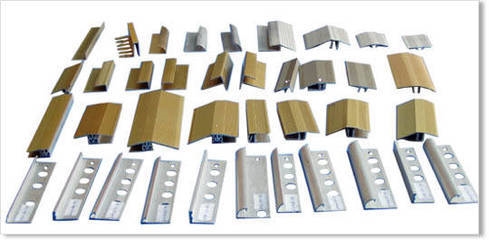
[China Aluminum Industry Network] 1. Pinhole defects
Causes of pinhole defects in aluminum alloys:
1 furnace material and aluminum alloy melting tool baking is not sufficient;
2 The melting temperature of the aluminum alloy is too high or the melting time is too long;
3 The molten aluminum stays too long after deterioration;
4 Alloy refining is not good; 5 Workplace is too humid.
Prevention methods:
1 Charges and tools should be thoroughly dried;
2 control the melting temperature, generally does not exceed 7400C, does not exceed the pouring temperature, but also to prevent the local overheating of the alloy in the melting process;
3 Operate quickly and shorten the smelting time as much as possible;
4 Refining operations should be careful, refining is a better way to prevent blowholes;
5 After the metamorphism, the alloy liquid should be poured in 8-15 minutes and should be poured in time. 6 Keep the smelting site dry.
2. Aluminum oxide slag
Causes of aluminum oxide slag inclusion defects:
1 The charge is not clean, and the amount of returned charge is too much;
2 The molten slag in the alloy liquid was not removed; 3 After the modification treatment, the standing time was not enough.
Preventive measures: After the charge is blown, the charge is controlled within 70% of the charge quality. The degassing and slag removal must be thorough. After deterioration, sufficient time for standing is ensured so that the slag has enough time to sink or float.
3. Shrinkage and shrinkage defects
Causes of shrinkage and shrinkage defects in aluminum alloys:
1 The alloy grain is coarse;
2 stroke alloy casting temperature is too high;
3 cast casting system design is unreasonable.
Prevention methods:
1 Effect of alloy liquid refining and metamorphic operation on the defects
Very large, so to be in place;
2 Strictly control the temperature of the aluminum liquid to prevent overheating.
In the case of castings that do not produce insufficient water, a low pouring temperature should be used as far as possible, and the pouring temperature is generally not to exceed 7300C;
3 Rationally design the pouring system so that the molten metal can be filled smoothly;
4 appropriate adjustment of the composition, control of the content of the appropriate impurities to enhance the fluidity of the molten metal is also effective.
150 Watt Solar Panel,Suntech Mono Solar Panel,Mono Cell Solar Panels,Lg Mono Solar Panel
Zhejiang G&P New Energy Technology Co.,Ltd , https://www.solarpanelgp.com